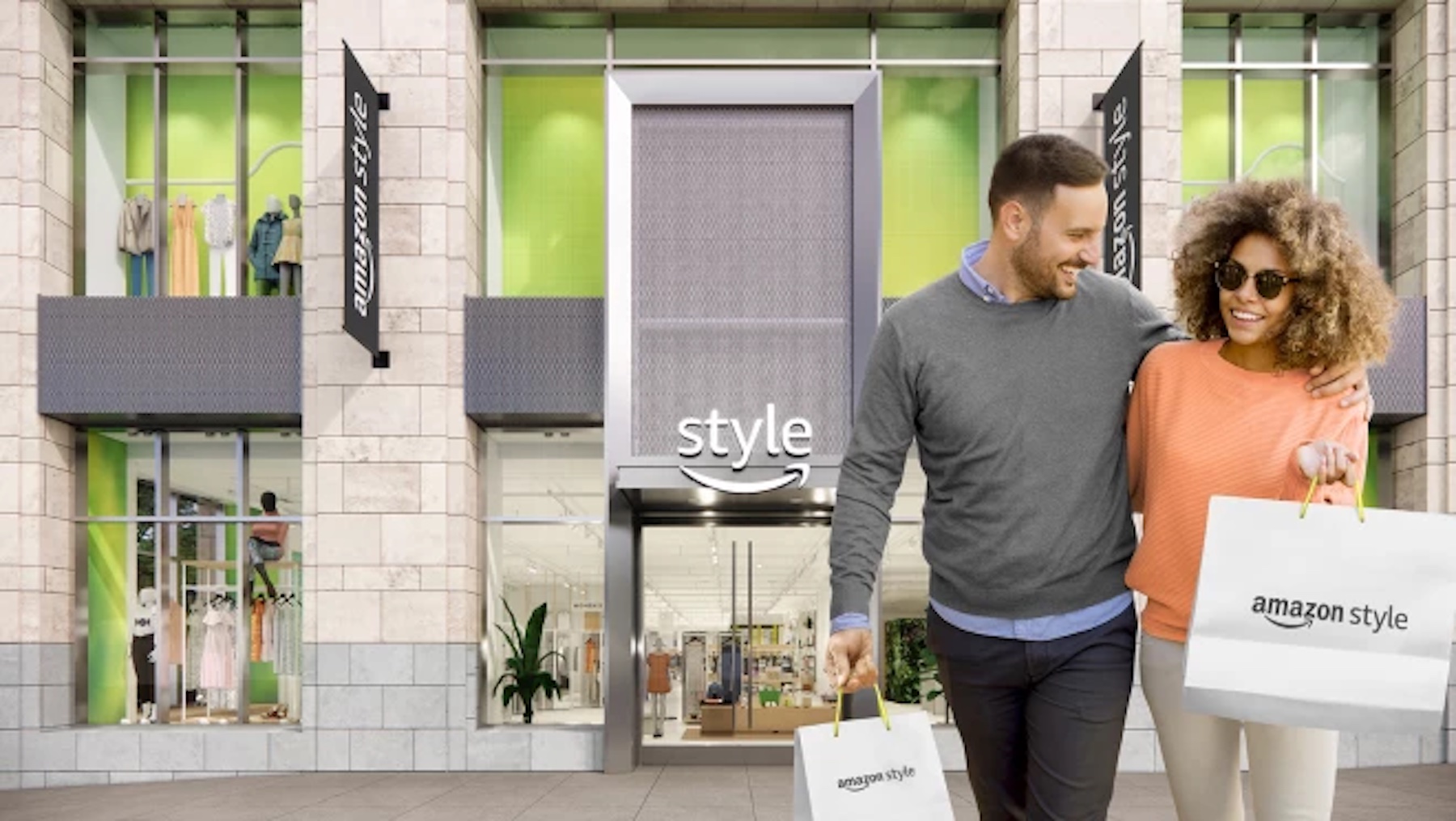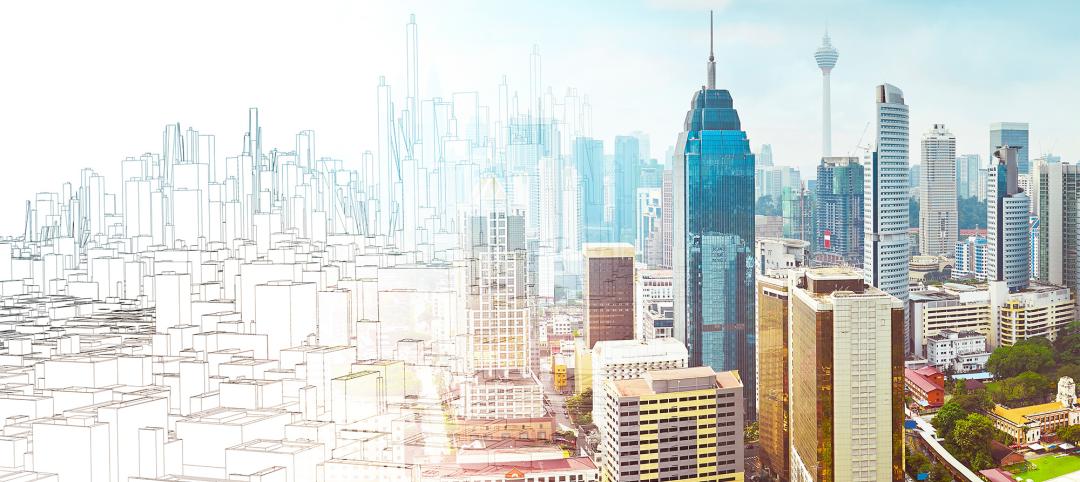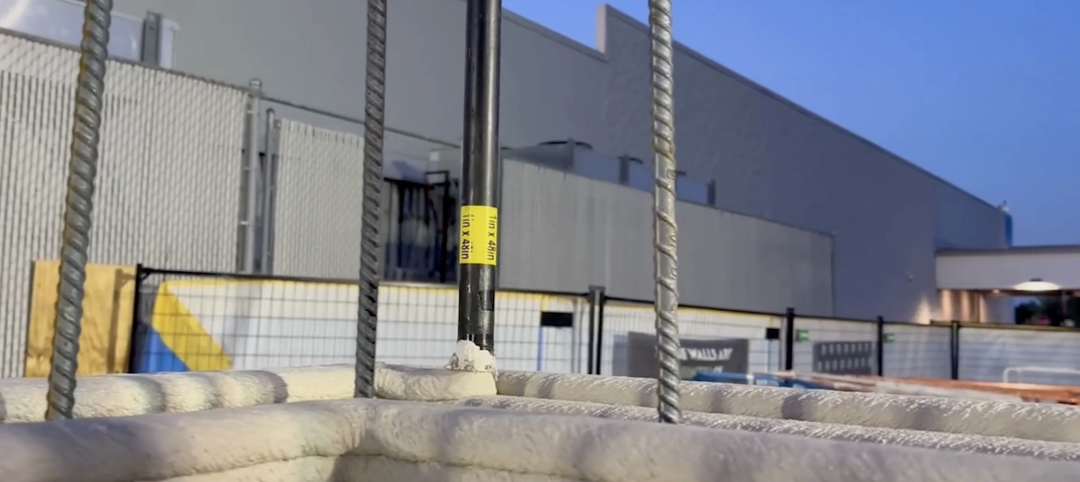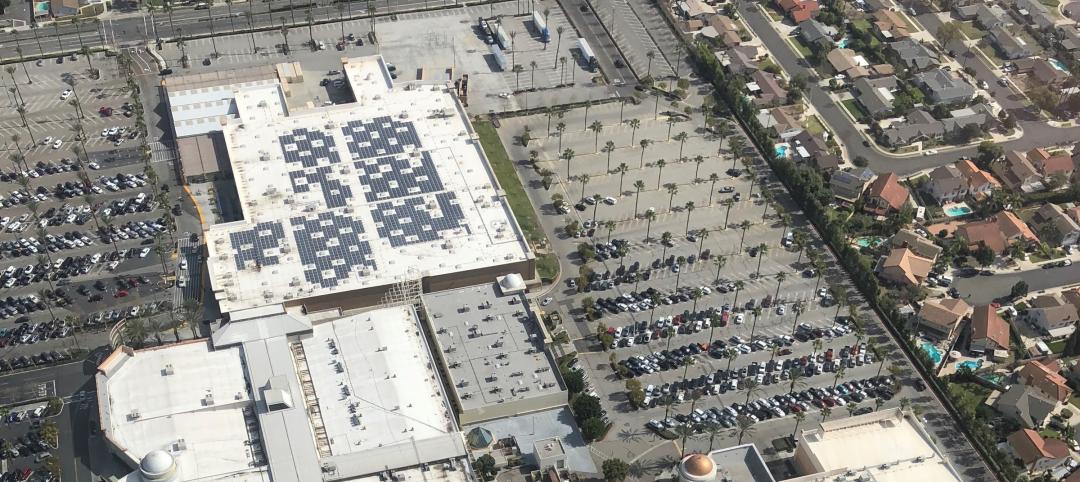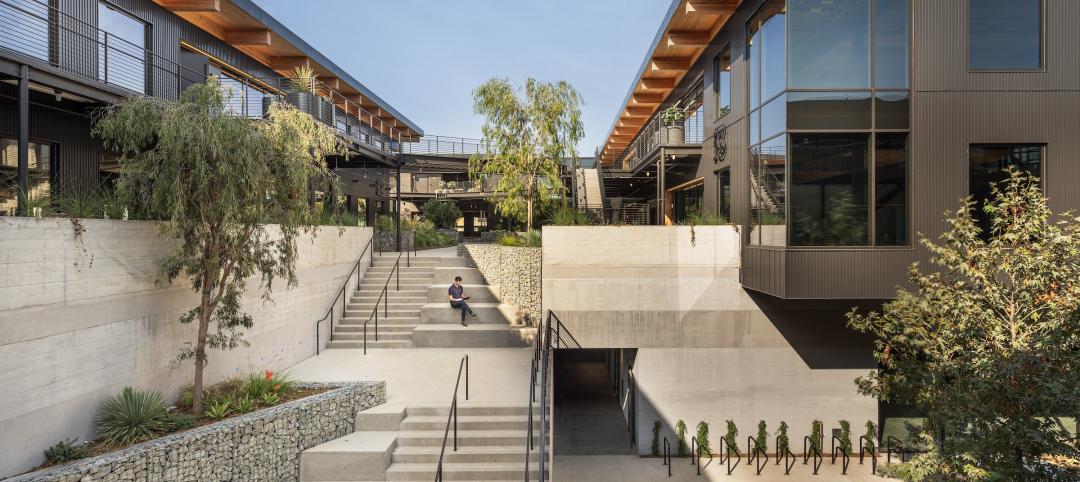Last week, Amazon unveiled plans to build a physical fashion store concept, dubbed Amazon Style, in Los Angeles. The e-commerce giant says the store will offer “together the best of shopping on Amazon–great prices, selection, and convenience–with an all new shopping experience built to inspire.”
Amazon has proven to be a giant in online apparel shopping, growing year after year. Last March, Wells Fargo reported that the company surpassed Walmart as the No. 1 apparel retailer in the United States. Now, the company is looking to transfer that online success into physical success with Amazon Style.
The 30,000–sf store will be about the size of a typical TJ Maxx, but smaller than your average department store. The first location is set to open in a Los Angeles suburb later this year. Amazon has given physical retail a shot in the past in the form of groceries and books, but it has never sold clothing or shoes in stores, until now.
Amazon will stock its own products, well known names such as Adidas and Jockey, as well as up-and-coming brands. The store will cater to every price point. “You’ll find everything from the $10 basic to the designer jeans to the $400 timeless piece,” said Simoina Vasen, managing director of Amazon Style.
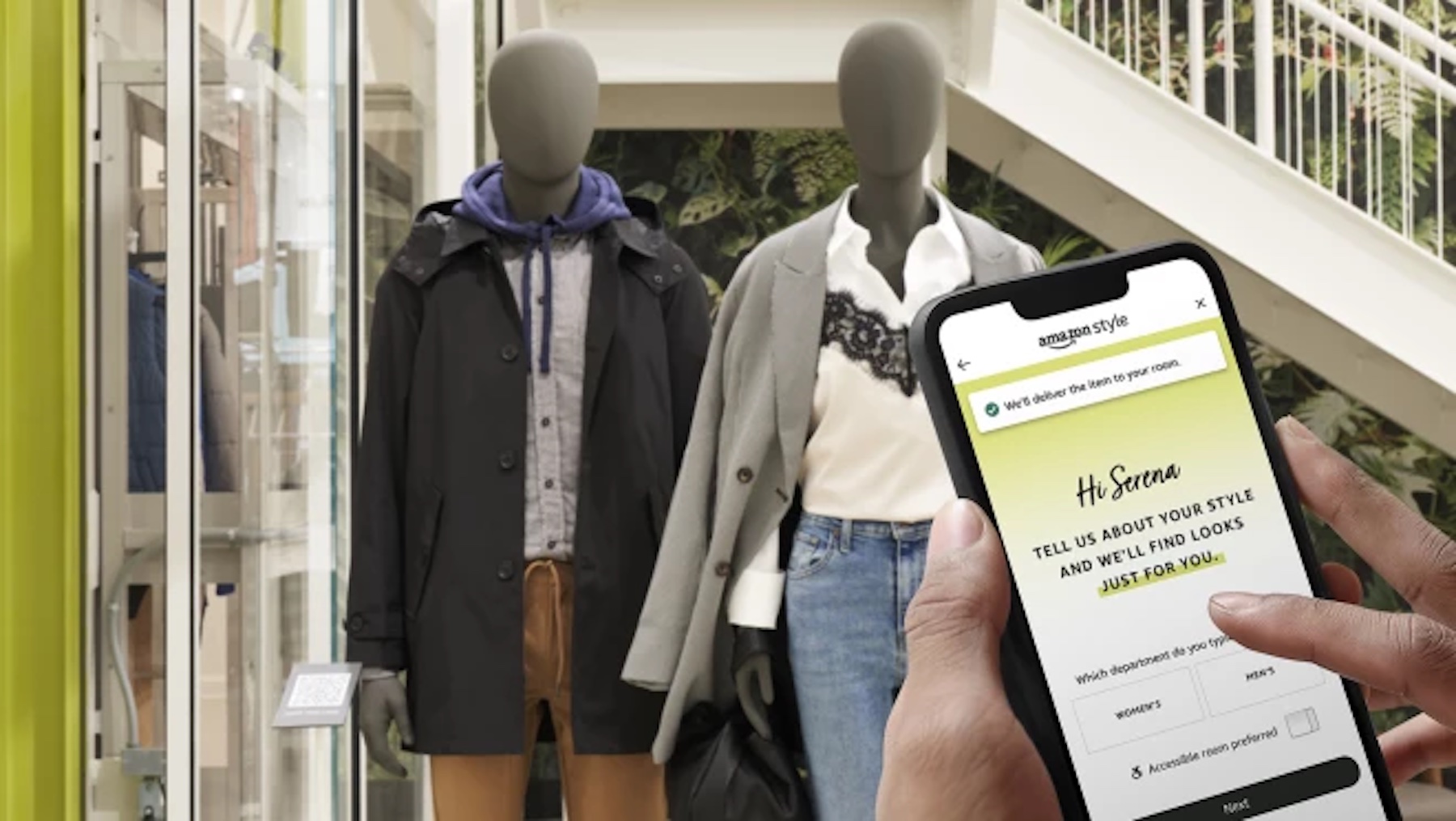
Amazon's Tech-Based Shopping Experience
Customers will notice a few different features than your average retail clothing store as soon as they walk in the door. Amazon Style will be the first of its kind, truly relying on technology and their mobile app.
The front of the store will feature “display items” with one size and one color of each product, and customers will be able to scan a QR code and see the sizes, colors, and products available.
Each of the fitting rooms will have touch screens where shoppers can have items sent to them. Lastly, checkout will be facilitated by Amazon One, the company’s palm-scanning technology.
Non-Traditional Retail Convenience
Obviously this way of shopping is non-traditional, but the real question is will it work? After the announcement, there has been some debate on whether or not shoppers prefer this style of shopping or would rather search through clothing racks for a hidden gem.
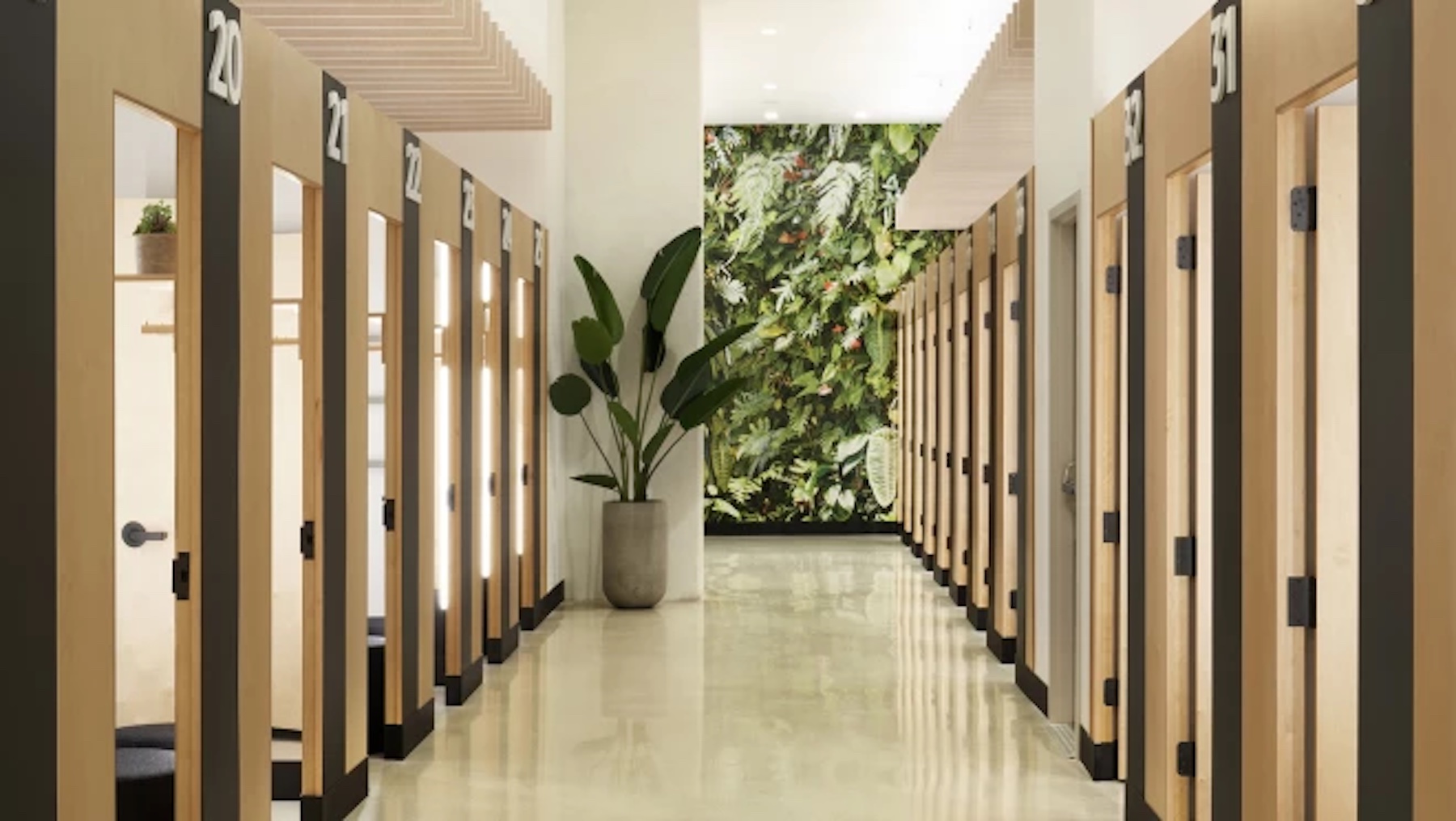
Many shoppers do enjoy the experience of “treasure hunting”, but the company believes in their mission. Although Amazon Style’s QR code model doesn’t necessarily fall in line with those customers wanting to look through different selections, it does offer one thing that many people look for when it comes to their time and shopping experience, which is convenience.
Convenience seems to be the common theme with Amazon Style’s QR code model, and Vasen believes their “unique store design, advanced technology, and thoughtful curation will make it easier than ever for customers to have an inspiring, convenient, enjoyable, and ultimately successful shopping experience.”
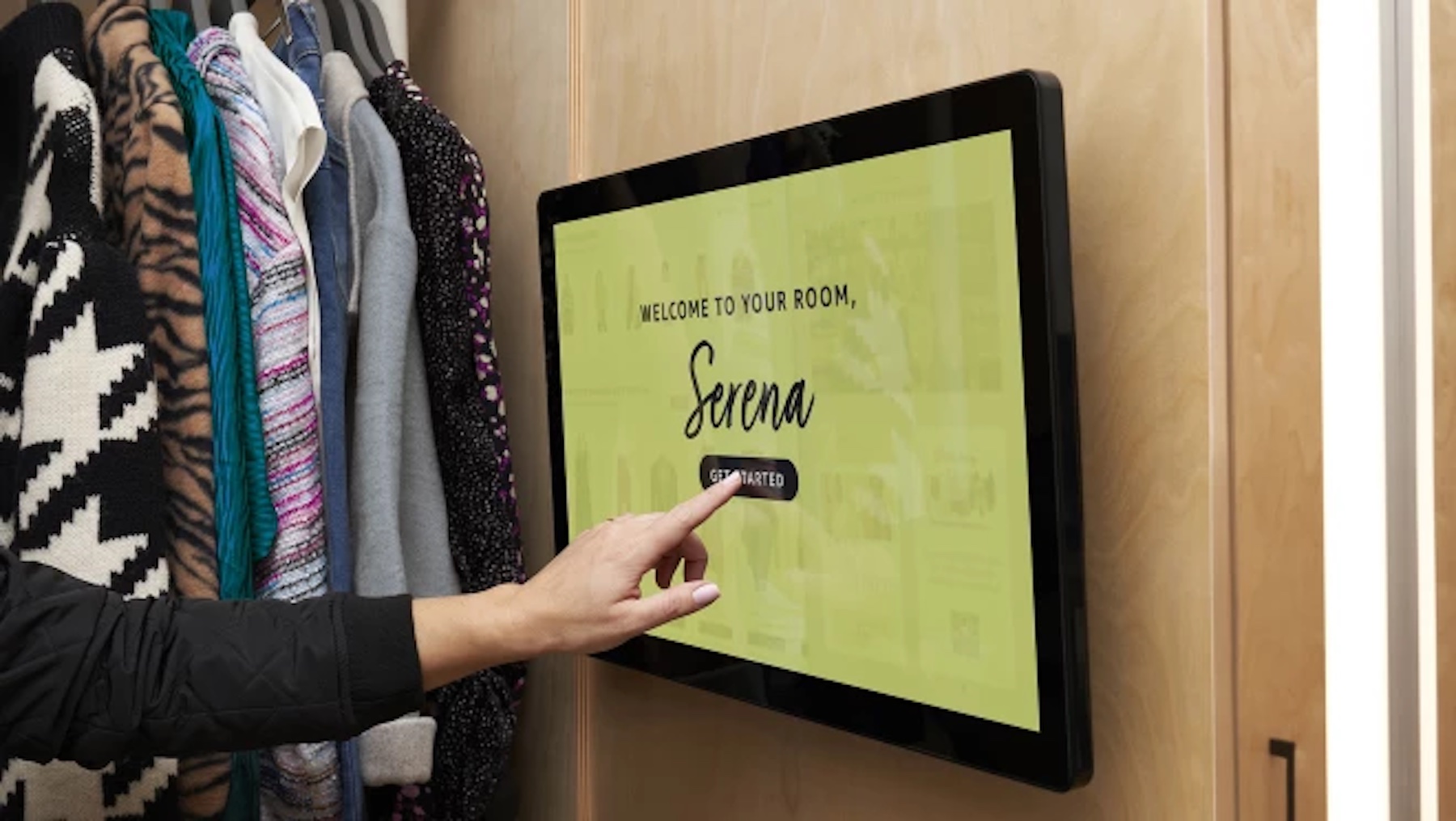
Related Stories
3D Printing | Oct 9, 2024
3D-printed construction milestones take shape in Tennessee and Texas
Two notable 3D-printed projects mark milestones in the new construction technique of “printing” structures with specialized concrete. In Athens, Tennessee, Walmart hired Alquist 3D to build a 20-foot-high store expansion, one of the largest freestanding 3D-printed commercial concrete structures in the U.S. In Marfa, Texas, the world’s first 3D-printed hotel is under construction at an existing hotel and campground site.
Mixed-Use | Oct 7, 2024
New mixed-use tower by Studio Gang completes first phase of San Francisco waterfront redevelopment
Construction was recently completed on Verde, a new mixed-use tower along the San Francisco waterfront, marking the end of the first phase of the Mission Rock development. Verde is the fourth and final building of phase one of the 28-acre project that will be constructed in several phases guided by design principles developed by a design cohort led by Studio Gang.
The Changing Built Environment | Sep 23, 2024
Half-century real estate data shows top cities for multifamily housing, self-storage, and more
Research platform StorageCafe has conducted an analysis of U.S. real estate activity from 1980 to 2023, focusing on six major sectors: single-family, multifamily, industrial, office, retail, and self-storage.
Mixed-Use | Sep 19, 2024
A Toronto development will transform a 32-acre shopping center site into a mixed-use urban neighborhood
Toronto developers Mattamy Homes and QuadReal Property Group have launched The Clove, the first phase in the Cloverdale, a $6 billion multi-tower development. The project will transform Cloverdale Mall, a 32-acre shopping center in Toronto, into a mixed-use urban neighborhood.
3D Printing | Sep 17, 2024
Alquist 3D and Walmart complete one of the nation’s largest free-standing, 3D-printed commercial structures
Walmart has completed one of the largest free-standing, 3D-printed commercial structures in the US. Alquist 3D printed the almost 8,000-sf, 20-foot-high addition to a Walmart store in Athens, Tenn. The expansion, which will be used for online pickup and delivery, is the first time Walmart has applied 3D printing technology at this scale.
Retail Centers | Sep 17, 2024
Thinking outside the big box (store)
For over a decade now, the talk of the mall industry has been largely focused on what developers can do to fill the voids left by a steady number of big box store closures. But what do you do when big box tenants stay put?
Mass Timber | Sep 17, 2024
Marina del Rey mixed-use development is L.A.’s largest mass timber project
An office-retail project in Marina del Rey is Los Angeles’ largest mass timber project to date. Encompassing about 3 acres, the 42XX campus consists of three low-rise buildings that seamlessly connect with exterior walkways and stairways. The development provides 151,000 sf of office space and 1,500 sf of retail space.
Mixed-Use | Aug 21, 2024
Adaptive reuse of a Sears store becomes luxury mixed-use housing
6 Corners Lofts at 4714 W Irving Park Road, Chicago, Ill., opened in March of 2024 as a 394,000-sf adaptive reuse project born out of a former Sears store.
Adaptive Reuse | Jul 30, 2024
Empty mall to be converted to UCLA Research Park
UCLA recently acquired a former mall that it will convert into the UCLA Research Park that will house the California Institute for Immunology and Immunotherapy at UCLA and the UCLA Center for Quantum Science and Engineering, as well as programs across other disciplines. The 700,000-sf property, formerly the Westside Pavilion shopping mall, is two miles from the university’s main Westwood campus. Google, which previously leased part of the property, helped enable and support UCLA’s acquisition.
Smart Buildings | Jul 25, 2024
A Swiss startup devises an intelligent photovoltaic façade that tracks and moves with the sun
Zurich Soft Robotics says Solskin can reduce building energy consumption by up to 80% while producing up to 40% more electricity than comparable façade systems.


